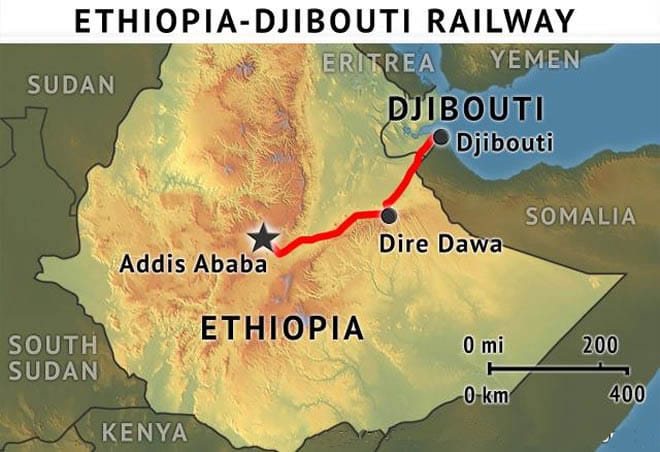The World Bank has approved an additional $90 million in financing to expand the Djibouti Regional Economic Corridor, a significant infrastructure project aimed at enhancing regional connectivity and trade in the Horn of Africa. This latest funding increases the total project budget to $160 million, up from the initial $70 million approved in December 2021.
The new funding will be allocated to the repair and maintenance of three sections of the Djibouti-Addis Southern Corridor, a crucial trade route linking Djibouti and Ethiopia. It will also support transit facilitation measures and provide technical assistance to Djibouti’s government for improved corridor management.
The project includes the construction of key access roads, climate-friendly storage, auxiliary market facilities, and dedicated areas for female traders to promote inclusivity in the region’s economic growth.
“This additional support will further bolster Djibouti’s role as a regional trade hub and enhance the lives of its citizens,” said Ousmane Dione, World Bank Vice President for the Middle East and North Africa, during a visit to the country. “The project will also support Djibouti’s Vision 2035 goals, focusing on economic diversification and social inclusion.”
Strategically located at the crossroads of critical global shipping routes, Djibouti plays a pivotal role as a trade hub in the Horn of Africa. Ethiopia, a landlocked nation, depends heavily on Djibouti’s port infrastructure, which handles over 90% of its imports and exports. This port activity is a major contributor to Djibouti’s economy, generating between $1.5 to $2 billion annually in tariffs and fees from Ethiopian cargo. The port sector accounts for 85% of Djibouti’s GDP.
The corridor project is part of the Horn of Africa Initiative, launched in 2019, which seeks to enhance economic integration and cooperation among Djibouti, Eritrea, Ethiopia, Kenya, and Somalia—one of the world’s most economically challenged regions.
“We are committed to leading the way in regional development and integration. Continued investment in infrastructure will help us unlock the full potential of this collaboration,” said Djibouti’s Minister of Economy and Finance, Ilyas Moussa Dawaleh. He expressed gratitude to the World Bank for its ongoing support in enhancing regional connectivity.
Despite its small size, Djibouti’s strategic position on some of the world’s busiest shipping routes, including the Red Sea and the Indian Ocean, makes it a key player in regional and international trade. However, the country faces vulnerabilities, including heavy reliance on global maritime transport, regional instability, and dependence on Ethiopia for trade. Djibouti’s Vision 2035 aims to diversify its economy and reinforce its status as a regional trade hub.
Looking forward, Djibouti’s GDP is projected to grow by 5.1% annually from 2024 to 2026, driven by rising demand for logistics services and ongoing infrastructure projects like the Damerjog Industrial Park.


